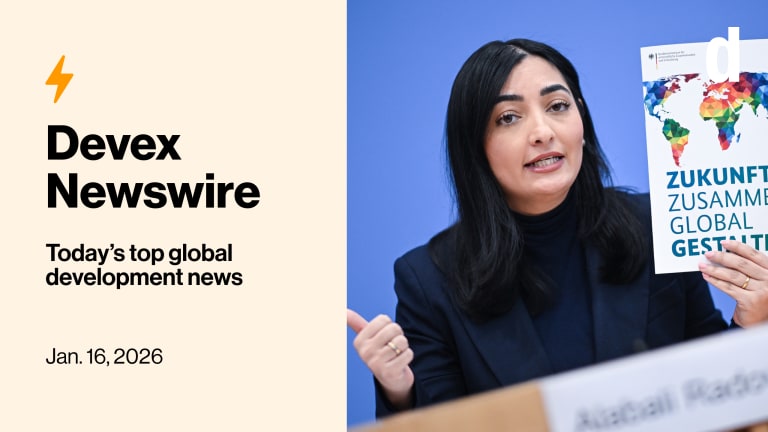
Blogger and activist Dalia Ziada has been pressing for democratic reforms in her native Cairo since long before the Arab Spring uprisings that shook North Africa and the Middle East.
Since 2007, Ziada has been director of the North Africa bureau of the American Islamic Congress, which advocates democratic reforms in the Arab world and promotes a better understanding of moderate Islam among non-Muslims in the West.
When Egyptians began challenging Mubarak’s nearly three-decade hold on power in January, she live-blogged the revolution and helped organize pro-democracy factions, both online and on the street.
In the uprisings’ wake, Ziada and the AIC are running training programs on institution building for young social activists across the Arab world. They are planning to hand out microgrants to a cadre of training program graduates to help them build everything from village environmental groups to neighborhood watches.
Devex sat down with Ziada on the sidelines of the Society for International Development World Congress in Washington July 29-31 to talk about the uprisings and about what post-Arab Spring development should look like.
What should USAID and large development organizations be doing in North Africa right now?
We have been seeing the World Bank and the [International Monetary Fund] and different development agencies offering aid to Egypt and Tunisia and other countries going through revolutions now. But what people need there is capacity building. Don’t just go there and give them money or give it to the governments to misuse it. Find the right people on the ground, the youths, the grassroots, the ordinary people. Go speak with them, hear their ideas. And give them the money after they’ve proven their capacity, not before. Otherwise, they’ll take the money and waste it because they don’t know how to spend it the right way.
There’s a debate here in the United States about how important a role the Internet and social media actually played in the Arab Spring uprisings and in the Green Revolution in Iran. As a blogger and activist, you probably have a lot of insight into this.
It’s true that the Internet was very very important, but it was not the thing that made the revolution. The Internet provided people a window to get the knowledge they needed. But without them feeling a need to do something, without them feeling moved from inside, the revolution was not going to happen.
We have been using the Internet for so long to advocate social change, but it never became effective until we decided to move outside the Internet, outside of Facebook and to communicate with the people on the street and encourage them to participate. That was the moment our numbers multiplied.
There’s been a lot of talk at this conference about whether development and democracy must work in tandem. What do you think? Was the United States wrong to give development money to the Mubarak regime?
My answer is institutionalism. If the U.S. was giving money to Egypt with the provision that there should be strong institutions established to monitor the spending and report back to the U.S., then maybe we could have avoided all the corruption that we saw in the Egyptian regime. If the aid that’s given to developing countries is followed by monitoring, this will enhance democracy. It will enhance institutions at the same time it increases development.
Are you optimistic about the future of democracy in Egypt?
Yes. Despite all the chaos and all the disturbances going on, I believe the future is for us, for the young people.
I’ve been going to meetings with officials [in Washington] over the past week. All of them are saying that Egypt will end up either in the hands of the military or in the hands of the Muslim Brotherhood. The [phrase] I hear a lot from them is “the devil we know is better than the devil we don’t know.” I hate these words. Because they are both devils but there are angels too. The angels are there in the streets. They’re calling for democracy and they understand what they need to get it. So just go and support them. I understand this fear in the West. We also have this fear, but it shouldn’t blind us from doing the right thing.
Read last week’s 3 Questions, and find out jobs and funding opportunities in Egypt.








